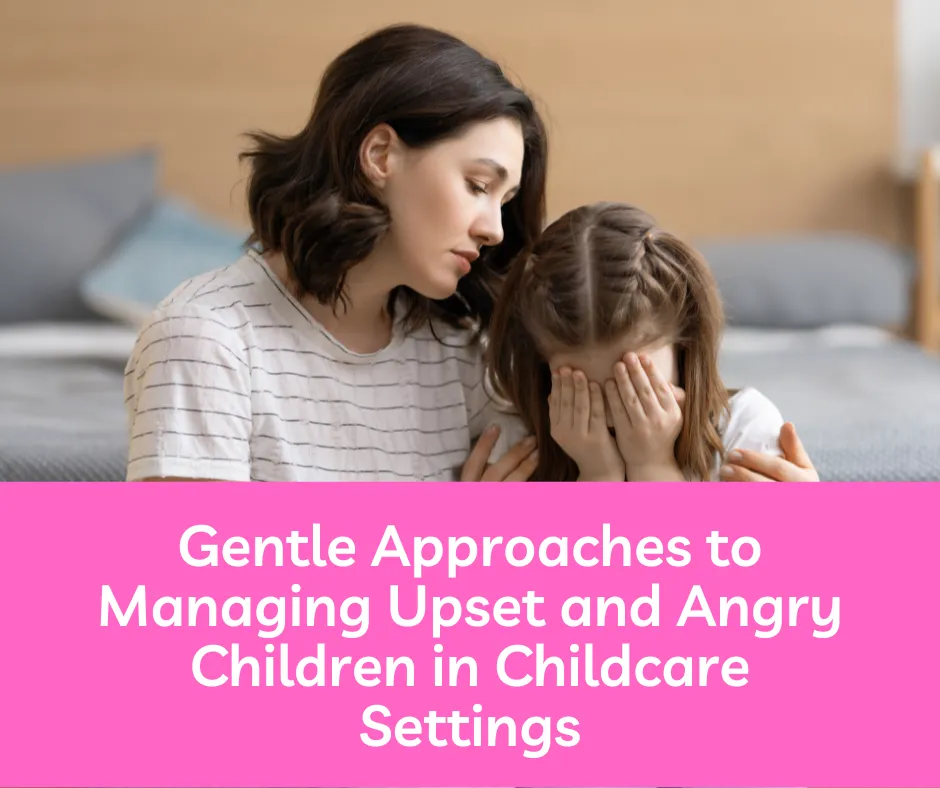
Gentle Approaches to Managing Upset and Angry Children in Childcare Settings
In every childcare setting, it's inevitable that children will occasionally feel upset or angry. Understanding the root causes of these emotions and knowing how to respond effectively are critical skills for every childcare provider. At Kidazzle, we advocate for approaches that respect the child's feelings while guiding them towards healthier emotional expressions. Here are key strategies that can be employed:

Help Your Child Achieve Independence! Enroll now!
1. Acknowledge Their Feelings
Start by recognizing and validating the child's emotions. Use empathetic language to convey that it's okay to feel upset or angry. For instance, saying, "I understand that you're feeling angry because your toy was taken away, and that's okay," helps the child feel heard and understood.
2. Maintain Calmness
Children often reflect the emotional states of adults around them. By staying calm and composed, you set a peaceful tone that can help soothe their agitation. This doesn't mean ignoring the child's emotions but rather addressing them with a calm and steady presence.
3. Encourage Expression in Healthy Ways
Encourage children to express why they're upset or angry in words, if they're able to, or through drawings or play for younger children. This expression is a crucial step in helping them navigate their feelings and begin to work through them.
4. Offer Choices and Solutions
Once the immediate emotional wave has passed, help the child think of constructive ways to address the situation. Offering choices empowers them to find solutions and learn problem-solving skills. For example, if a dispute over a toy caused the upset, discuss ways to share or take turns.
5. Teach and Practice Coping Strategies
Introduce simple coping strategies that children can use when they feel overwhelmed, such as taking deep breaths, counting to ten, or using a quiet corner designed for calming down. Regularly practicing these techniques can make them more accessible to children in moments of distress.
6. Set and Enforce Clear Boundaries
While it's important to empathize with children's feelings, it's equally important to uphold and communicate clear boundaries around acceptable behavior. Consistently enforcing these boundaries helps children feel secure and understand the framework within which they can express their emotions.
7. Model Emotional Regulation
Children learn a great deal from observing adults. Demonstrating how to handle disappointment, frustration, and anger in constructive ways serves as a powerful lesson in emotional regulation.
8. Build Emotional Intelligence Through Curriculum
Integrate activities and discussions about emotions into your curriculum. Books, stories, and games that explore feelings can be excellent tools for helping children understand and manage their emotions.
Learn More About Our Programs
